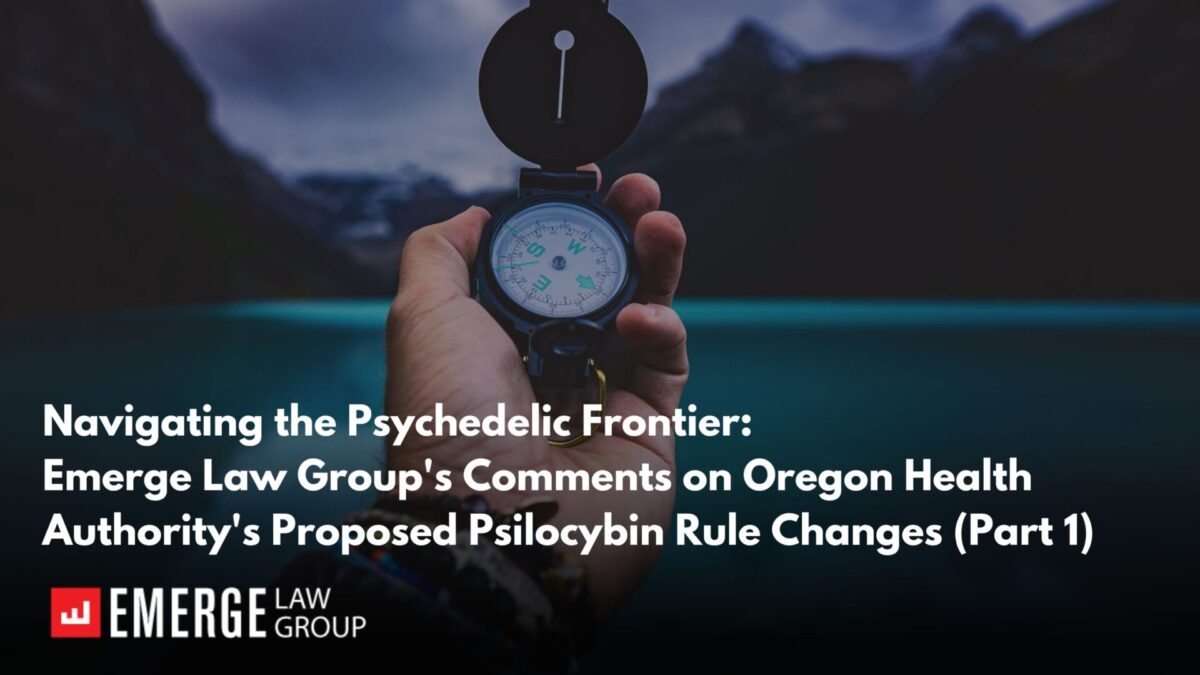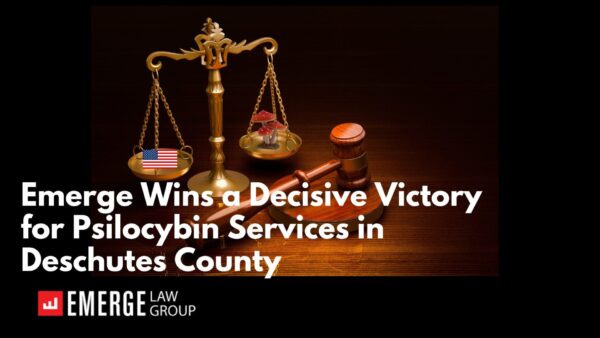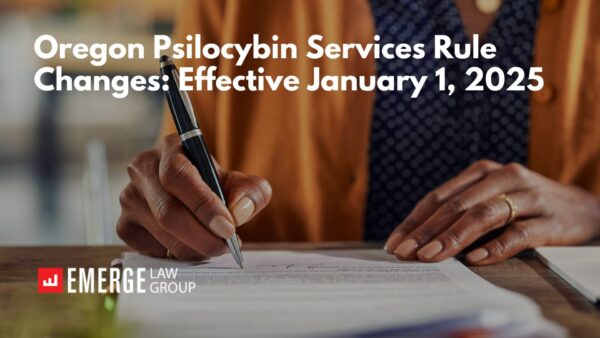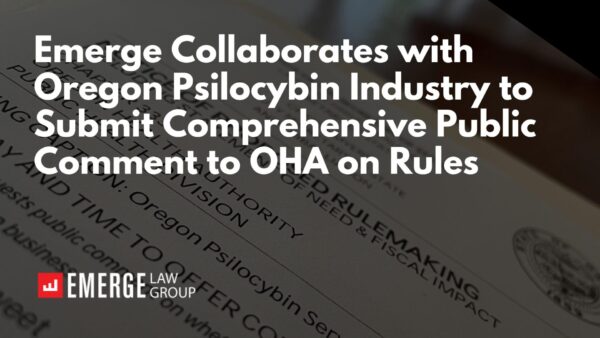Authors: Alex J. Berger, Attorney; Sean Clancy, Shareholder
As the world of psychedelics continues to evolve, so do the regulations governing their use. Recently, the Oregon Health Authority (OHA) proposed several rule changes in Oregon Administrative Rule (OAR) chapter 333, division 33, which sparked a public comment period that concluded on November 21, 2023. Emerge Law Group submitted our own comments which raised several crucial issues about the proposed rules. Led by attorney Dave Kopilak, Emerge Law Group’s Oregon Psychedelics Group took a deep dive into these proposed rules. For a comprehensive overview of our comments, please refer to the full document available here.
Here is a summary of the first half of our comments and recommendations. The second half will come in Part 2.
1. Definition Dilemma: Client Records and Prospective Clients (OAR 333-333-1010(19))
The proposed definition of “client records” in OAR 333-333-1010(19) raised eyebrows at Emerge. The broadness of the term, including unwritten information held in memory, seemed inconsistent with its application throughout the proposed rules. To address this, the group suggested refining the definition to align with the logical consistency of its use in the rules.
Moreover, including communications from “prospective clients” under the “client records” definition struck the group as impractical and possibly beyond OHA’s legal authority. We recommended narrowing the rules to apply only to existing clients, as defined in the Oregon Psilocybin Services Act (“ORS 475A”).
2. Defining the Client (OAR 333-333-1010, New Defined Term)
While “client” is defined in ORS 475A, its absence in the proposed rules prompted us to propose a definition for this term, which shows up throughout the rules. This addition, consistent with ORS 474A.220(2), aimed to clarify when an individual officially becomes a “client” subject to OHA’s authority.
3. Correcting the Catch-22: License Fees (OAR 333-333-4060(4))
We support OHA’s proposed correction to the rules which would allow entity applicants to take advantage of reduced license fees if all individual owners of the entity met one or more requirements (formerly, only single, natural person human applicants were given reduced fees). But we proposed to eliminate the “Catch-22” scenario of past reduced fee denial based on legal entity ownership in 2022 by providing existing licensees who would now qualify for the reduced fee with a credit to correct the overcharge in 2023.
4. Residency Rules Clarification (OAR 333-333-4130(2) and 333-333-4130(3))
To avoid immediate denial of applications submitted by folks who do not meet the two-year Oregon Residency requirement, but submitted the applications near in time to the sunset date of the requirement – January 1, 2025 – we recommended a clarification in both service center and facilitator license application rules that would keep such applications active so long as, under normal OHA processing timelines, the applications could be approved after the January 1, 2025 sunset date.





